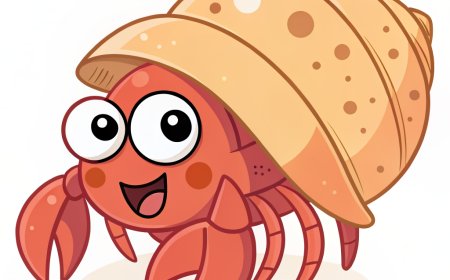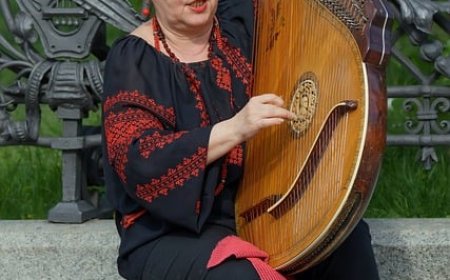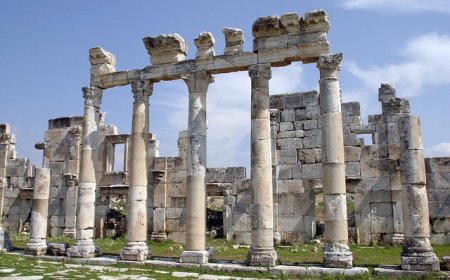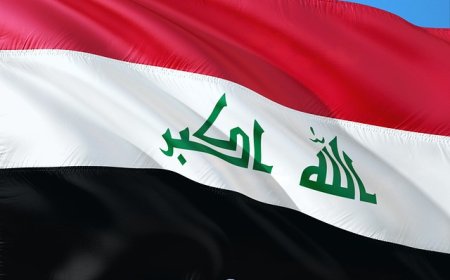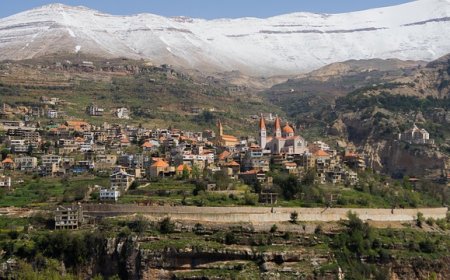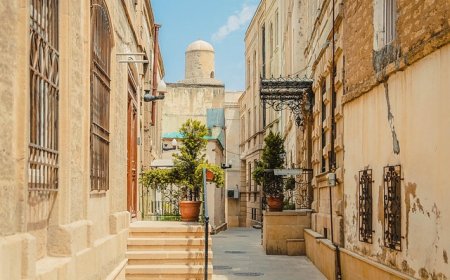Brunei for Students: Geography, Culture, and Daily Life in a Tiny but Powerful Southeast Asian Nation
Discover Brunei for kids. Learn about rainforests, mosques, and Bruneian culture. Includes fun facts, vocabulary words, and a quiz.
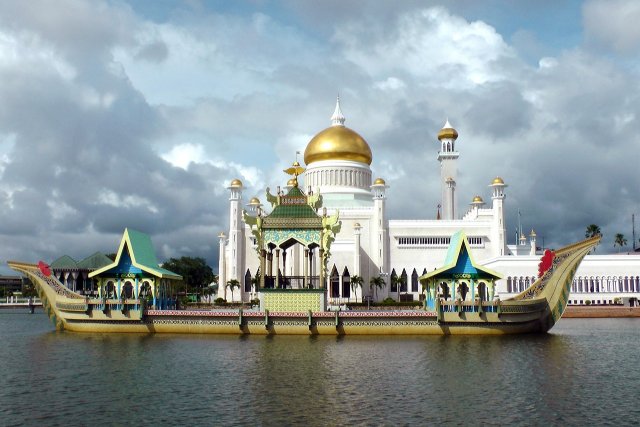
🇧🇳 Brunei: A Small Kingdom Rich in Culture and Oil
Introduction
Brunei is a small country on the island of Borneo in Southeast Asia. Though it covers less land than most cities in the world, it is known for its wealth, royal traditions, and peaceful forests. Brunei is ruled by a sultan, making it one of the few remaining monarchies in the region.
Even though Brunei is small, it has an important place in Asia. Thanks to oil and natural gas, the country has a strong economy and provides free healthcare, education, and other benefits to its people. Brunei is often called the “Abode of Peace,” and it works to keep a balance between traditional values and modern development.
Geography and Landscape
Brunei is located on the northern coast of Borneo, surrounded by the country of Malaysia and the South China Sea. It is split into two parts, which are separated by a Malaysian region in between. The country is mostly flat and green, covered with tropical rainforests, rivers, and swamps.
The climate in Brunei is tropical, meaning it’s hot and humid all year, with lots of rain. Rainforests cover much of the land and are home to birds, monkeys, and rare plants. Conservation is important in Brunei, and large areas are protected from deforestation.
One special feature of Brunei is the Kampong Ayer, a centuries-old water village built on stilts above the Brunei River. People live in wooden homes connected by walkways, and the village even has schools, mosques, and shops—just over the water!
Cities and Regions
The capital city is Bandar Seri Begawan. It's not as big or busy as other Southeast Asian capitals, but it’s clean, modern, and rich in culture. The most famous buildings in the city are the Sultan Omar Ali Saifuddien Mosque, which has a golden dome, and the Istana Nurul Iman, the world’s largest residential palace.
Outside the capital, most of Brunei is made up of forests, villages, and coastal areas. The country is divided into four districts: Brunei-Muara, Belait, Tutong, and Temburong. The Ulu Temburong National Park is in the eastern part and is only accessible by boat—it’s a great place for exploring nature.
People, Language, and Culture
Brunei’s population is about 450,000 people, and the majority are ethnic Malays. Other groups include Chinese, indigenous people, and immigrants. The official language is Malay, but many people also speak English and Mandarin.
The main religion is Islam, and Islamic values play a strong role in Brunei’s laws, education, and daily life. Brunei follows Sharia law, a set of religious rules, and people dress modestly, avoid alcohol, and celebrate Islamic holidays like Hari Raya Aidilfitri.
At the same time, Brunei welcomes diversity. There are also Buddhists and Christians, and festivals like Chinese New Year and Christmas are celebrated by some communities.
Brunei’s culture includes traditional music and dance, royal ceremonies, and crafts like weaving and silverwork. Hospitality and family respect are very important values.
Food and Daily Life
Brunei’s food is influenced by Malay, Chinese, and Indian cuisines. Meals are often shared with family and include rice, noodles, chicken, fish, and spices. Street food is popular, especially at night markets.
Common dishes include:
- Nasi lemak – rice with sambal (spicy sauce), egg, and peanuts
- Ambuyat – a sticky sago starch eaten with dipping sauce, unique to Brunei
- Satay – grilled meat on sticks served with peanut sauce
- Roti – Indian-style flatbread eaten with curry
Most people in Brunei live in modern houses or apartments, while others live in the water village. School is free, and students wear uniforms. Education and religion are both important, and many families also attend prayers together.
Brunei has no income tax, and healthcare is free or low-cost for citizens. The government supports the people with many services, which is possible because of the country’s oil and gas wealth.
History of Brunei
Brunei’s history goes back over 1,000 years, when it was a powerful kingdom that traded with China and other Asian countries. In the 15th century, Brunei became an Islamic sultanate, and at one point, it ruled much of Borneo and the Philippines.
In the 1800s, Brunei’s power declined, and parts of its territory were taken by the British. Brunei became a British protectorate, meaning it had its own ruler but was guided by the British.
In 1984, Brunei gained full independence and has since been ruled by Sultan Hassanal Bolkiah, one of the world’s longest-serving monarchs. The sultan plays an important role in the government, military, and religion, and is very respected by the people.
Nature and Conservation
Brunei’s forests are some of the most well-preserved in Southeast Asia. The country has chosen to protect large areas of its rainforest instead of cutting them down. This helps animals like hornbills, gibbons, sun bears, and proboscis monkeys live safely in the wild.
In places like Ulu Temburong National Park, visitors can walk on canopy bridges high above the forest or take boat rides to waterfalls. These eco-tours help people enjoy nature while keeping it safe.
Brunei also works to keep its air and water clean, limit pollution, and use its oil and gas wisely. It is known for being a “green” country that protects both people and the planet.
Vocabulary List
| Word | Definition |
|---|---|
| Sultan | A Muslim king or ruler, especially in Islamic countries like Brunei |
| Rainforest | A warm, wet forest with many trees and animals |
| Sharia Law | Islamic religious law based on the Quran |
| Water Village | A town built over water using wooden stilts |
| Ambuyat | A sticky food made from sago, eaten in Brunei |
| Mosque | A place where Muslims go to pray |
| Protectorate | A country ruled by its own leader but guided by another nation |
| Eco-tourism | Travel that supports protecting nature and local culture |
👧🧒 Kid-Friendly Summary
Brunei is a small, peaceful country on the island of Borneo. It has a king called a sultan, and it is rich because of oil. People in Brunei speak Malay and follow Islamic traditions. The capital city, Bandar Seri Begawan, has golden mosques and even a palace!
Brunei has rainforests full of monkeys and birds. Some people even live in water houses. Food is yummy, and families are close. Brunei may be small, but it’s full of culture and nature!
🧠 Interactive Quiz: What Do You Know About Brunei?
1. What is the capital of Brunei?
A) Kuala Lumpur
B) Bandar Seri Begawan
C) Manila
D) Jakarta
2. Who is the ruler of Brunei?
A) President
B) Prime Minister
C) Sultan
D) Emperor
3. What is ambuyat made from?
A) Rice
B) Sago starch
C) Potatoes
D) Bananas
4. What religion is most common in Brunei?
A) Christianity
B) Islam
C) Hinduism
D) Buddhism
5. What is a water village?
A) A floating school
B) A forest town
C) A village built on stilts over water
D) A boat city
6. What kind of climate does Brunei have?
A) Cold and snowy
B) Dry desert
C) Tropical and rainy
D) Windy and cool
7. When did Brunei become independent?
A) 1945
B) 1963
C) 1984
D) 2000
8. What animal might you see in Brunei’s rainforest?
A) Polar bear
B) Proboscis monkey
C) Kangaroo
D) Camel














